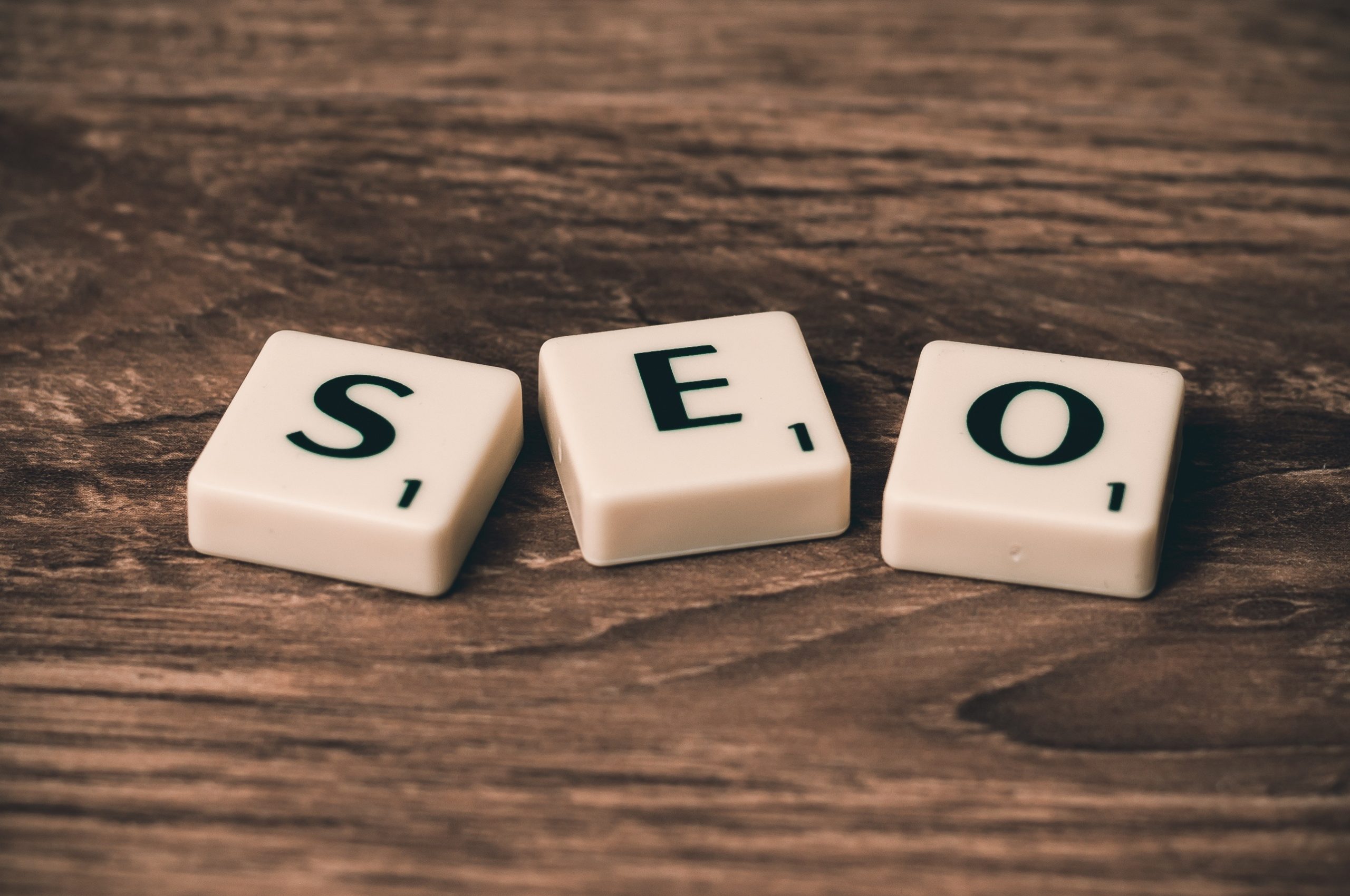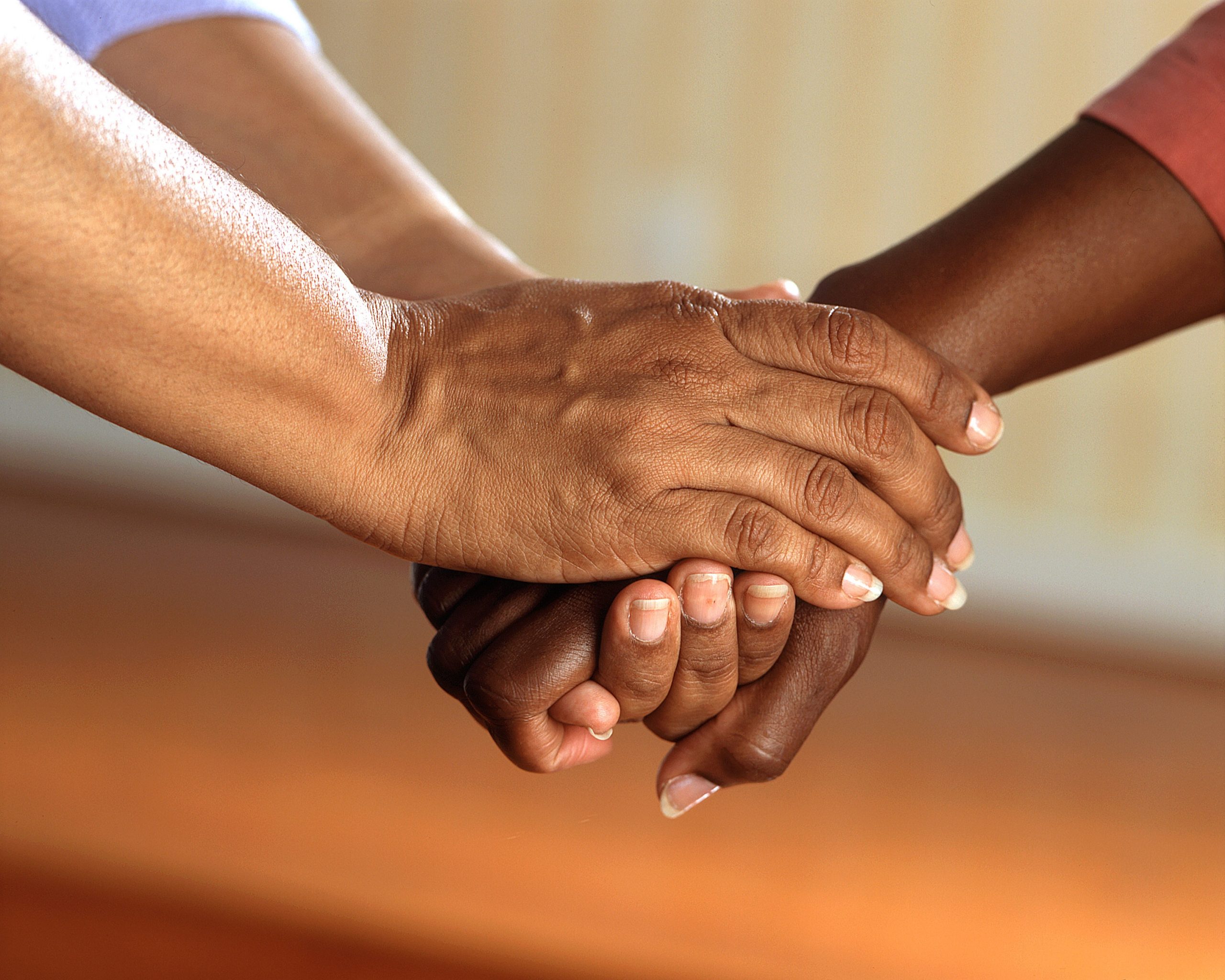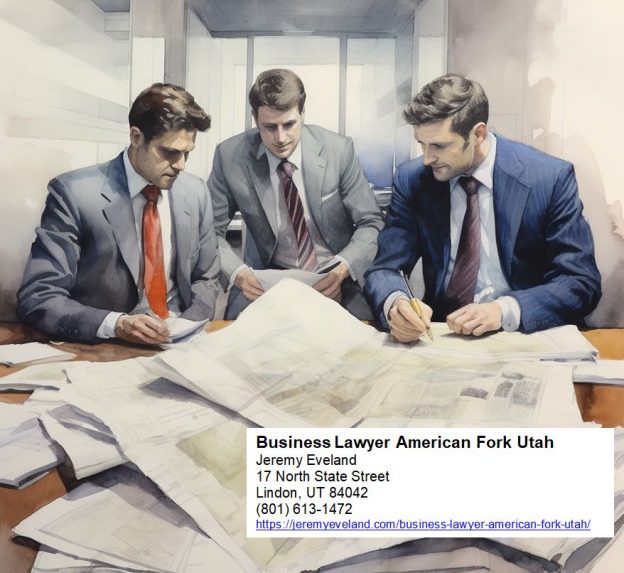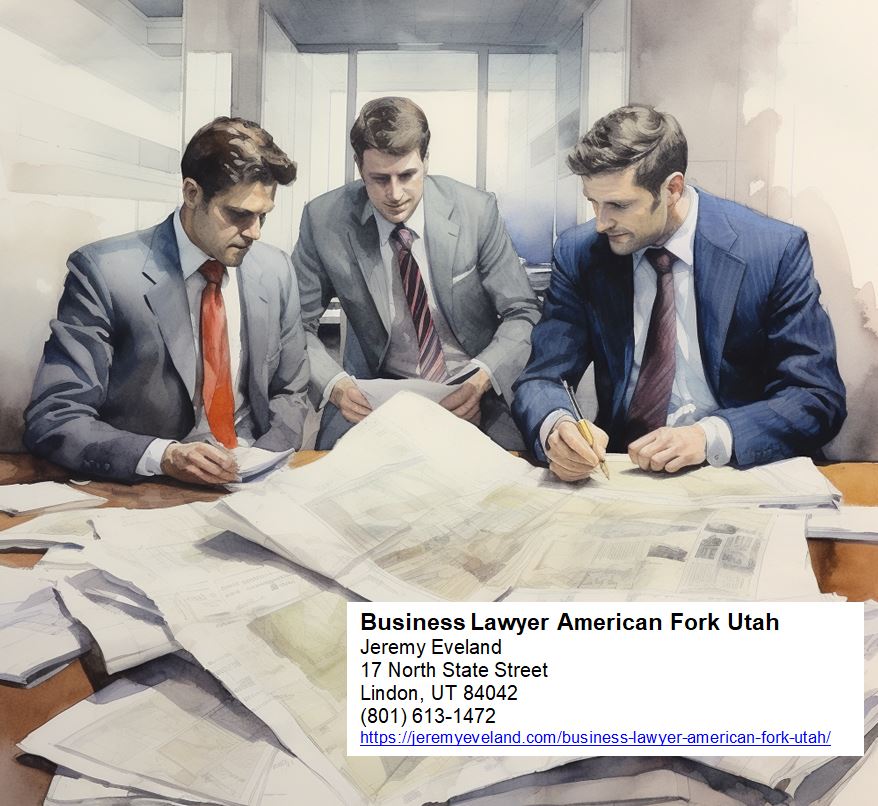In today’s business world, evidence plays a crucial role in ensuring fair dealings and resolving disputes. Whether it’s a contract dispute, a regulatory compliance investigation, or a intellectual property infringement claim, evidence is the key to building a strong case and protecting your business interests. In this article, we will explore the importance of evidence in the legal landscape and how it can empower businesses and business owners to navigate complex legal issues with confidence. By understanding the role of evidence and its significance in legal proceedings, you will be equipped to make informed decisions and secure the best possible outcome for your company. If you require expert legal advice and representation tailored to your specific needs, we encourage you to contact our professional lawyer for a consultation.

The Importance of Evidence in Legal Cases
When it comes to legal cases, evidence plays a crucial role in determining the outcome. Evidence, in its various forms, serves as the foundation upon which arguments are built, facts are proven, and justice is served. It provides the necessary proof to support claims and helps to establish the truth in both civil and criminal matters.
What is Evidence?
Evidence can be defined as any information, whether in the form of a testimony, document, object, or digital file, that is presented in a court of law to prove or disprove a fact. It is the means by which parties involved in a legal case support their claims, challenge opposing arguments, and persuade judges, juries, or arbitrators to rule in their favor.
The Role of Evidence in Legal Cases
The role of evidence in legal cases is multifaceted. It serves as the basis for establishing the facts of a case and helps to provide a clear and unbiased picture of the events that took place. Evidence is used to assess the credibility of witnesses, evaluate the strength of arguments, and ultimately guide the decision-making process.
In criminal cases, the prosecution must present evidence to prove the guilt of the defendant beyond a reasonable doubt, while the defense seeks to present evidence that raises doubt or offers an alternative explanation. In civil cases, evidence is used to determine liability, establish damages, and help parties negotiate fair settlements.
Types of Evidence
Evidence can take many forms, each with its own purpose and significance. Some common types of evidence include:
- Testimonial Evidence: This includes the statements of witnesses, both laypersons and experts, who provide firsthand accounts of what they observed or experienced.
- Documentary Evidence: Documents, such as contracts, emails, medical records, or financial statements, can provide written proof or support for certain claims.
- Physical Evidence: Tangible objects, such as weapons, fingerprints, or DNA samples, can be examined and presented in court to prove a fact or establish a connection.
- Digital Evidence: With the rise of technology, electronic data, including emails, text messages, social media posts, or surveillance footage, has become increasingly relevant in legal cases.
- Circumstantial Evidence: This type of evidence relies on inference and deduction rather than direct proof. It establishes a set of circumstances from which a fact can be reasonably inferred.
Admissibility of Evidence
Not all evidence is admissible in a legal case. The rules of admissibility dictate whether a particular piece of evidence can be presented in court for consideration. These rules are in place to ensure fairness, reliability, and the preservation of each party’s rights.
Factors that determine the admissibility of evidence include relevance, materiality, authenticity, reliability, and the potential for prejudice. The judge, as the gatekeeper of evidence, makes determinations regarding whether evidence should be admitted or excluded based on these factors and the legal framework in place.
The Burden of Proof
The burden of proof refers to the responsibility of a party to present evidence and persuade the court or jury that their claim is valid. In criminal cases, the prosecution carries the burden of proving guilt beyond a reasonable doubt. In civil cases, the burden of proof may be less demanding, requiring a preponderance of the evidence or clear and convincing evidence.
Preserving and Collecting Evidence
The preservation and collection of evidence is a critical step in building a strong legal case. Properly preserving and collecting evidence ensures its admissibility and helps to maintain its integrity. It involves identifying potential sources of evidence, securing them, and keeping a detailed record of their chain of custody.
Chain of Custody
The chain of custody refers to the chronological record of individuals who have had custody and control over the evidence from the moment it is collected until it is presented in court. Maintaining a proper chain of custody is crucial to establish the authenticity and integrity of the evidence. Any break or tampering in the chain of custody can potentially undermine its credibility and admissibility.
Expert Witnesses and Expert Evidence
Expert witnesses play a crucial role in many legal cases, providing specialized knowledge or opinion in a particular field. Expert evidence is admissible when the witness has the necessary qualifications, and their testimony is deemed reliable and relevant to the case. Expert witnesses can help clarify complex issues, provide scientific or technical analysis, and assist the court in reaching an informed decision.
Credibility of Witnesses
Assessing the credibility of witnesses is an essential part of evaluating evidence. Factors such as the witness’s demeanor, consistency in their statements, their expertise or knowledge on the subject matter, and any potential bias or motive are taken into consideration. The credibility of witnesses can significantly impact the weight and persuasiveness of the evidence they provide.
The Role of Evidence in Jury Trials
Injury trials, evidence plays a significant role in guiding the decision-making process of juries. Jurors rely on the evidence presented to them to evaluate the credibility of witnesses, weigh the strength of the arguments, and arrive at a verdict. It is essential for attorneys to effectively present their evidence to juries in a clear and persuasive manner.
Gathering and Presenting Evidence
The process of gathering and presenting evidence requires careful planning and execution. Attorneys and investigators employ various techniques to collect evidence that supports their clients’ claims and strengthens their legal arguments.
Investigative Techniques for Collecting Evidence
Investigative techniques, such as interviews, surveillance, research, and forensic analysis, are commonly used to collect evidence. This may involve conducting witness interviews to gather additional information, gathering physical or digital evidence, or employing experts to analyze and interpret complex data.
Interviews and Statements
Interviews and statements provide a valuable source of evidence, as they allow attorneys to collect information directly from witnesses, victims, or individuals involved in the case. Interviews can be conducted in a formal or informal setting, either in person, over the phone, or through written statements. Careful questioning and documentation of the responses are crucial for collecting accurate and reliable evidence.
Documentary Evidence
Documentary evidence plays a significant role in legal cases, as it provides written proof or support for claims. This can include contracts, agreements, correspondence, financial records, medical records, or any other documents relevant to the case. Attorneys must carefully authenticate and introduce these documents to ensure their admissibility and persuasive effect.
Physical Evidence
Physical evidence, such as weapons, fingerprints, DNA samples, or other objects, can provide crucial information and proof in a case. Collecting, analyzing, and presenting physical evidence requires proper protocols to ensure its integrity and admissibility. Expert witnesses may be called upon to explain the meaning or significance of the physical evidence to the court.
Digital Evidence
As digital technology becomes more prevalent in society, digital evidence has gained significance in legal cases. Emails, text messages, social media posts, surveillance footage, or computer system logs can provide valuable insights and proof. However, the preservation, collection, and analysis of digital evidence require specialized knowledge and forensic expertise.
Surveillance and Third-Party Evidence
Surveillance and third-party evidence can be instrumental in gathering objective and unbiased information in a case. Surveillance footage, witness statements, or records from third-party individuals or entities can provide crucial corroborating evidence or challenge opposing claims. Attorneys must navigate legal and ethical boundaries when collecting and presenting these types of evidence.
Chain of Custody Procedures
Chain of custody procedures must be followed meticulously when collecting, storing, and presenting evidence. Establishing and maintaining a proper chain of custody is crucial to validate the authenticity and reliability of the evidence. Any break, alteration, or tampering in the chain of custody can jeopardize the admissibility and credibility of the evidence.
Analyzing and Organizing Evidence
Once evidence is collected, it must be thoroughly analyzed, organized, and evaluated. This involves reviewing the evidence for relevance, consistency, and credibility. Attorneys and their teams work to connect the pieces of evidence, identify patterns or inconsistencies, and build a coherent narrative that supports their client’s position.
Preparing Evidence for Presentation
Effective presentation of evidence requires careful planning and preparation. Attorneys must decide which evidence to present, how to present it, and in what order. This may involve creating exhibits, preparing visual aids, or summarizing complex information in a clear and concise manner. The goal is to present the evidence in a way that maximizes its impact and persuasiveness.
The Importance of Clear and Concise Exhibits
Exhibits are an essential tool for presenting evidence in court. Clear and concise exhibits help to simplify complex information, provide visual support to arguments, and enhance the jury’s understanding. Well-prepared exhibits can significantly strengthen the presentation of evidence and contribute to a successful outcome.
Direct and Circumstantial Evidence
In legal cases, evidence can be categorized as either direct or circumstantial, each with its own strengths and challenges.
Definition and Differences
Direct evidence refers to evidence that directly proves a fact without the need for further inference or deduction. It provides clear and conclusive proof of a particular event or claim.
Circumstantial evidence, on the other hand, does not directly prove a fact but relies on inference or deduction to establish a set of circumstances from which a fact can be reasonably inferred. It requires the judge or jury to make logical connections based on the available evidence.
The Strength of Direct Evidence
Direct evidence is often considered strong and persuasive because it provides undeniable proof of a fact. Witness testimony, video footage, or physical evidence that directly links a suspect to a crime are examples of direct evidence. It eliminates the need for inference or interpretation and leaves little room for doubt.
Proving Circumstantial Evidence
Proving circumstantial evidence requires the careful presentation of facts, logical reasoning, and the elimination of alternative explanations. Circumstantial evidence builds a set of circumstances that, when viewed together, lead to a reasonable inference. To be effective, attorneys must establish a logical chain of events and eliminate other plausible explanations that would contradict their claims.
Understanding Inferences and Conclusions
Inferences and conclusions play a significant role in understanding circumstantial evidence. They require the judge or jury to use their reasoning skills to draw logical conclusions based on the evidence presented. Attorneys must effectively guide the fact-finder through the evidence, ensuring that the inferences and conclusions drawn align with their client’s position.
Combining Direct and Circumstantial Evidence
In many cases, direct and circumstantial evidence are combined to provide a comprehensive and convincing argument. Direct evidence may establish a crucial fact, while circumstantial evidence helps to fill in gaps, establish motive, or support a logical inference. The combination of both types of evidence strengthens the overall case and increases the chances of a favorable outcome.
Challenges and Limitations of Circumstantial Evidence
Circumstantial evidence has certain challenges and limitations compared to direct evidence. It requires the judge or jury to weigh the available evidence, make inferences, and draw conclusions based on logical reasoning. The nature of circumstantial evidence leaves room for interpretation, making it subject to challenges by opposing parties. Attorneys must anticipate and address these challenges to effectively present circumstantial evidence.
Prosecution and Defense Strategies
Both the prosecution and defense can leverage direct and circumstantial evidence to support their respective arguments. Prosecutors may rely on strong direct evidence to establish guilt beyond a reasonable doubt, while the defense may use circumstantial evidence to challenge the prosecution’s case or provide an alternative explanation. The strategic use of evidence is crucial in building a strong legal argument.
The Admissibility of Evidence
Not all evidence is admissible in a legal case. The rules of admissibility are in place to ensure fairness, reliability, and the preservation of each party’s rights.
Relevance and Materiality
The first requirement for evidence to be admissible is relevance. Evidence must be logically connected to the issue at hand and have a tendency to prove or disprove a fact. It should assist the trier of fact in reaching a decision.
Materiality is another important consideration. Evidence must be material to the case, meaning it has a tendency to influence the outcome or a significant bearing on a disputed issue.
The Hearsay Rule
The hearsay rule is a common exclusionary rule that restricts the admissibility of out-of-court statements offered for the truth of the matter asserted. Hearsay is generally excluded because it is considered less reliable, lacks firsthand knowledge, and prevents the opposing party from cross-examining the declarant.
Exceptions to the Hearsay Rule
There are several exceptions to the hearsay rule, which allow certain out-of-court statements to be admitted as evidence. These exceptions include statements made under oath, statements against interest, present sense impressions, excited utterances, and statements made for medical diagnosis or treatment, among others. Each exception is subject to specific requirements and limitations.
Exclusionary Rule and Constitutional Protections
The exclusionary rule is a constitutional principle that prohibits the use of evidence obtained in violation of an individual’s constitutional rights. It acts as a deterrent to police misconduct and ensures that evidence obtained through illegal searches or seizures is not admitted in court. The exclusionary rule balances individuals’ rights against the need for society to hold criminals accountable.
Privileged Communications
Certain communications are considered privileged and are protected from being disclosed as evidence in court. These include attorney-client communications, doctor-patient communications, spousal privilege, and clergy-penitent privilege, among others. Privileged communications are shielded to encourage open and confidential discussions between individuals and professionals.
Character Evidence
Character evidence refers to evidence that speaks to a person’s character or propensity to act in a certain way. Generally, character evidence is not admissible to prove conduct in a specific instance, as it can lead to prejudice and unfair judgments. However, character evidence may be admissible in certain circumstances, such as in cases where character is directly relevant to the issue at hand.
Expert Opinion and Testimony
Expert opinion and testimony can be admissible when the witness has specialized knowledge, skill, experience, or training that goes beyond what an average person knows. Expert testimony must meet specific criteria, such as being based on reliable principles and methods and being helpful to the trier of fact. The judge acts as the gatekeeper, determining the admissibility of expert testimony.
Authentication and Chain of Custody Requirements
To be admissible, evidence must be properly authenticated. Authentication ensures that the evidence is what it purports to be and has not been tampered with or altered. This may involve presenting witness testimony, establishing a chain of custody, or using other corroborating evidence.
Burden of Proof for Admissibility
The proponent of the evidence has the burden of proving its admissibility. This requires presenting sufficient evidence and arguments to convince the court or opposing party that the evidence meets the requirements of admissibility. The judge ultimately makes the final determination regarding the admissibility of evidence.
Challenges and Objections to Evidence
In legal cases, objections and challenges to evidence are common. Attorneys use these strategies to exclude or limit the admissibility of evidence that may be prejudiced, unreliable, or in violation of established rules and procedures.
Objections during Trial
During trial, attorneys may raise objections to evidence that they believe should be excluded. Common objections include objections based on relevance, hearsay, improper authentication, lack of foundation, or violation of discovery rules. The judge decides whether the objection is sustained, meaning the evidence is excluded, or overruled, allowing the evidence to be presented.
The Role of the Judge and Jury
The judge and jury play different roles in assessing the admissibility and weight of evidence. The judge acts as the gatekeeper of evidence, determining its admissibility based on legal rules and principles. The jury, on the other hand, evaluates the evidence presented and makes factual determinations based on its credibility and persuasiveness.
Common Challenges to Evidence
Common challenges to evidence include questioning its authenticity, relevance, credibility, or the procedures used to collect or analyze it. Attorneys may challenge the chain of custody, the qualifications of expert witnesses, the admissibility of expert opinions, or the hearsay nature of statements. Skillful challenges to evidence can significantly impact the outcome of a case.
Hearsay Objections
Hearsay objections are frequently raised to exclude out-of-court statements offered for the truth of the matter asserted. Attorneys may challenge the admissibility of hearsay evidence by arguing that it is unreliable, lacks firsthand knowledge, or violates the opposing party’s right to cross-examination. The specific hearsay exception being relied upon can also be subject to challenge.
Unreliable or Inadmissible Evidence
Attorneys are tasked with challenging evidence that may be unreliable, inadmissible, or prejudiced. This may involve presenting arguments, case law, or expert testimony to show that the evidence fails to meet the necessary criteria for admissibility. The exclusion of unreliable or inadmissible evidence is important in ensuring a fair and just trial.
Defending Against Improperly Admitted Evidence
If improper evidence is admitted, opposing parties have the opportunity to challenge its credibility and persuasiveness. Attorneys can cross-examine witnesses, present counter-evidence, or use expert testimony to challenge the validity and weight of the evidence. The goal is to persuade the fact-finder to discount or disbelieve the improperly admitted evidence.
Challenges to Expert Witnesses
Expert witnesses are subject to challenges that question their qualifications, objectivity, or the reliability of their opinions. Attorneys may explore the expert’s background, education, experience, and prior testimony to challenge their credibility. Skillful cross-examination and the presentation of contradictory evidence are common strategies used to weaken the impact of expert witnesses.
Cross-Examination Tactics
Cross-examination is a powerful tool used by attorneys to challenge the credibility and reliability of witnesses and their testimony. Skillful cross-examination tactics involve careful questioning, using leading questions, impeaching the witness’s credibility, highlighting inconsistencies or contradictions, and reinforcing the opposing party’s arguments. Effective cross-examination can significantly weaken the persuasiveness of the evidence presented.
The Role of Evidence in Civil Cases
While evidence is crucial in criminal cases, its importance extends to civil cases as well. Civil cases involve disputes between individuals, organizations, or entities, and evidence plays a vital role in establishing liability, determining damages, and facilitating fair and just outcomes.
Difference between Civil and Criminal Cases
Civil cases differ from criminal cases in several key ways. Civil cases involve private disputes rather than crimes committed against society. The aim of civil cases is to resolve disagreements and provide compensation or remedies for parties who have suffered harm. The burden of proof in civil cases is generally lower than in criminal cases, requiring a preponderance of the evidence rather than proof beyond a reasonable doubt.
Standards of Proof in Civil Cases
Civil cases require the plaintiff to establish their claims by a preponderance of the evidence, meaning that it is more likely than not that their version of events is true. This standard of proof is a lower threshold than the beyond a reasonable doubt standard used in criminal cases. The burden of proof is on the party bringing the lawsuit, typically the plaintiff, to present evidence that is sufficient to meet this standard.
Types of Civil Evidence
Civil evidence encompasses a wide range of information and material that helps to establish liability, determine damages, and support legal arguments. This can include witness testimony, expert opinions, documents, records, physical evidence, and digital evidence. The type of evidence used in a civil case depends on the nature of the dispute and the legal issues involved.
Burden of Proof in Civil Cases
The burden of proof in civil cases rests on the plaintiff, who must present evidence to support their claims. The plaintiff must establish their version of events as more likely than not, convincing the trier of fact that their case is valid. The burden of proof can shift during the course of the trial, depending on the specific legal issues and defenses raised.
Using Evidence to Establish Liability
Evidence is critical in establishing liability in civil cases. Plaintiffs must present evidence that shows the defendant’s actions or negligence caused harm or violated a legal duty. This may involve eyewitness testimony, expert opinions, accident reconstructions, or other evidence that supports the claim of liability. Establishing liability relies on the strength and persuasiveness of the evidence presented.
Damages and Compensation
In civil cases, evidence is used to determine the extent of damages suffered by the plaintiff. Evidence must demonstrate the harm caused, the impact on the plaintiff’s life, and the monetary value of the damages sought. This can include medical records, financial records, expert opinions, or any other evidence that establishes the extent of the harm and the necessary compensation.
Defenses and Counterclaims
Evidence is also crucial in presenting defenses and counterclaims in civil cases. Defendants can introduce evidence that challenges the plaintiff’s claims, presents alternative explanations, or raises doubts about the plaintiff’s version of events. Counterclaims may require the defendant to present evidence to support their allegations against the plaintiff. The strength of the evidence presented often determines the success of these defenses and counterclaims.
Settlement Negotiations and Mediation
Even before reaching trial, evidence plays a significant role in settlement negotiations and mediation. The persuasive power of evidence can influence the parties involved to reach favorable settlements. Evidence can be used to demonstrate the strengths and weaknesses of each side’s case, leading to more favorable negotiation outcomes. The presentation of strong evidence enhances the credibility and persuasiveness of a party’s position, often leading to more favorable settlement terms.

Evidence in Employment Law Cases
Employment law cases involve legal disputes between employers and employees, typically arising from issues such as discrimination, harassment, wrongful termination, wage disputes, or retaliation. Evidence is critical in these cases to support claims, establish liability, and prove damages.
Discrimination and Harassment Cases
In discrimination and harassment cases, evidence is essential to support the employee’s claims and prove that unlawful discrimination or harassment occurred. This may include witness testimony, records of discriminatory actions, performance evaluations, emails, or other documented evidence that establishes a pattern or practice of discrimination or harassment.
Wrongful Termination Claims
Wrongful termination claims require strong evidence to establish that the employee was terminated in violation of their legal rights. Evidence must demonstrate that the termination was unlawful, such as due to discrimination, retaliation, whistleblowing, or a breach of contract. Documents, emails, witness testimony, and employment records can all play a role in supporting the allegations of wrongful termination.
Wage and Hour Disputes
Wage and hour disputes often involve complex issues surrounding the payment of wages, overtime, meal breaks, or misclassification of employees. Evidence is crucial in these cases to establish the employee’s actual work hours, the employer’s policies or practices, and any violations of wage and hour laws. This may involve the presentation of timecards, payroll records, work schedules, employee testimony, or expert opinions.
Retaliation and Whistleblower Cases
Retaliation and whistleblower cases require evidence to support the employee’s allegations of adverse actions taken in response to lawful actions, such as reporting illegal activities or filing complaints. Evidence must establish a causal connection between the employee’s protected activity and the adverse actions they experienced. Documents, witness testimony, and any evidence of a retaliatory motive can help strengthen these claims.
Evidence of Discriminatory Practices
Evidence of discriminatory practices is vital in employment law cases involving claims of discrimination or harassment. This can include documents, records, emails, witness testimony, or any evidence that shows a pattern or practice of discriminatory conduct. Statistical evidence may also be used to support claims of systemic discrimination.
Documentary Evidence in Employment Cases
Documentary evidence plays a significant role in employment law cases, as it provides written proof and support for claims. Contracts, employee handbooks, policies, emails, performance evaluations, or other documents can all serve as evidence to establish the employer’s practices, procedures, or actions in the case. Attorneys must effectively authenticate and introduce these documents to ensure their admissibility and persuasive effect.
Expert Testimony in Employment Cases
Expert testimony can be essential in employment law cases. Experts can provide specialized knowledge or opinions on complex issues, such as industry practices, employment standards, medical conditions, or statistical analysis. Expert testimony can help educate the trier of fact, clarify complex issues, and strengthen the employee’s case.
Proving Damages in Employment Law
Evidence is critical in proving damages in employment law cases. The employee must present evidence that establishes the extent of the harm suffered, such as lost wages, emotional distress, medical expenses, or other financial burdens. Medical records, pay stubs, financial records, or expert opinions can all be used to prove the damages sought.
Using Evidence to Build a Strong Legal Case
Building a strong legal case requires strategic use of evidence. Attorneys must employ various techniques and approaches to gather, analyze, and present evidence in a persuasive manner.
Importance of Early Case Assessment
Early case assessment is a crucial step in building a strong legal case. It involves conducting a thorough analysis of the facts, identifying potential sources of evidence, and evaluating the strengths and weaknesses of the case. Early case assessment allows attorneys to develop a sound strategy and determine the types of evidence needed to support their client’s claims.
Identifying and Evaluating Relevant Evidence
Identifying and evaluating relevant evidence is vital to the success of a legal case. Attorneys must carefully assess the available evidence, considering its relevance, materiality, authenticity, and potential to persuade the fact-finder. They must also anticipate potential challenges or objections to the evidence and develop strategies to address them.
Working with Investigators and Experts
Attorneys often work closely with investigators and experts to collect and analyze evidence. Investigators can help gather additional information, interview witnesses, and document evidence. Experts can provide specialized knowledge or opinions, conduct analyses or tests, and offer valuable insights in complex areas. Collaboration with investigators and experts ensures a thorough and comprehensive approach to evidence gathering.
Developing Sound Legal Theories and Strategies
Sound legal theories and strategies are essential in building a strong case. Attorneys must analyze the facts, legal principles, and potential arguments to develop a coherent and persuasive narrative. The choice of legal theories and strategies heavily relies on the available evidence and the desired outcome. Attorneys must effectively communicate these theories and strategies to the fact-finder.
Organizing and Analyzing Evidence
Organizing and analyzing evidence requires meticulous attention to detail. Attorneys must carefully review, categorize, and assess the significance and credibility of each piece of evidence. Organizing evidence in a logical and coherent manner helps attorneys present their case more effectively and persuasively.
Preparing for Depositions and Trial
Preparation for depositions and trial involves careful review of the evidence, developing questioning strategies, and anticipating potential cross-examination tactics. Attorneys must thoroughly understand the strengths and weaknesses of their evidence, potential challenges, and how it aligns with their legal theories. Preparation ensures that attorneys are confident and effective in presenting evidence during depositions and trial.
Effective Presentation of Evidence in Court
The effective presentation of evidence in court requires clear and persuasive communication. Attorneys must present their evidence in a manner that is easy to understand, highlights key points, and engages the fact-finder. This may involve the use of exhibits, visual aids, demonstrative evidence, or other techniques to enhance clarity and impact.
Rebutting Opposing Evidence
Rebutting opposing evidence is a critical part of building a strong legal case. Attorneys must carefully analyze the opposing evidence, identify its weaknesses or inconsistencies, and develop strategies to challenge or discredit it. Effective rebuttal requires a thorough understanding of the facts, the law, and the ability to present a compelling counter-argument.

Common Questions about Evidence
As individuals navigate the legal system, they often have questions about evidence and its role in legal cases. Here are some common questions and brief answers to provide clarity and guidance.
What qualifies as admissible evidence?
Admissible evidence is evidence that meets the legal requirements for relevance, materiality, authenticity, and credibility. It must have a logical connection to the issues in the case and assist the fact-finder in reaching a fair and just decision. Admissible evidence can include witness testimony, documents, physical objects, digital files, or other forms of information that support or challenge a claim.
Can evidence be excluded from a trial?
Yes, evidence can be excluded from a trial if it fails to meet the requirements of admissibility or is excluded based on specific legal rules or procedures. The judge acts as the gatekeeper of evidence, making determinations regarding its admissibility and exclusion based on objections raised by the parties or sua sponte.
What happens if evidence is improperly admitted?
If evidence is improperly admitted, the opposing party has the opportunity to challenge its credibility and persuasiveness. They can cross-examine witnesses, present counter-evidence, or use expert testimony to challenge the validity and weight of the evidence. The goal is to persuade the fact-finder to discount or disbelieve the improperly admitted evidence.
Can witnesses be impeached based on their credibility?
Yes, witnesses can be impeached based on their credibility. Attorneys can use various tactics, such as cross-examination, to challenge a witness’s credibility. This may involve pointing out inconsistencies in their testimony, highlighting bias or motive, presenting evidence of prior contradictory statements, or questioning their qualifications or expertise. Impeachment can significantly impact the weight and persuasiveness of a witness’s testimony.
Can new evidence be introduced during an appeal?
In general, appeals are limited to a review of the evidence presented at the trial court level. However, there are circumstances where new evidence may be introduced during an appeal. This may occur if the new evidence was discovered after the trial or if it was previously unavailable or improperly excluded. The rules and procedures regarding the introduction of new evidence during an appeal vary by jurisdiction.
How can evidence be challenged or objected to?
Evidence can be challenged or objected to by raising specific objections during trial. Common objections include objections based on relevance, hearsay, improper authentication, lack of foundation, or violation of discovery rules. The opposing party can present arguments and case law to support their objection, and the judge ultimately decides whether the objection is sustained, excluding the evidence, or overruled, allowing the evidence to be presented.
What is the role of expert testimony?
Expert testimony plays a crucial role in many legal cases. Experts provide specialized knowledge or opinions in a particular field that goes beyond what an average person knows. Expert testimony can help clarify complex issues, provide scientific or technical analysis, and assist the court in reaching an informed decision. The judge acts as the gatekeeper of expert testimony, determining its admissibility and weight.
How does the burden of proof affect the admissibility of evidence?
The burden of proof affects the admissibility of evidence by setting the standard required for a party to present evidence to support their claims. The higher the burden of proof, such as beyond a reasonable doubt in criminal cases, the more demanding the evidence and arguments must be. The burden of proof influences the extent and strength of the evidence needed to meet the standard.
What happens if key evidence is lost or destroyed?
If key evidence is lost or destroyed, it can have a significant impact on a case. The loss or destruction of evidence can lead to adverse inferences, suspicion, or challenges to the credibility of the remaining evidence. Attorneys must take proactive steps to preserve and collect evidence, including following proper chain of custody procedures, to avoid the loss or destruction of key evidence.
Can evidence from the internet be used in a legal case?
Yes, evidence from the internet can be used in a legal case, depending on its relevance, authenticity, and credibility. Attorneys must carefully authenticate and introduce internet evidence to ensure its admissibility. This may involve presenting witness testimony, establishing a chain of custody, or using other corroborating evidence. The credibility and weight given to internet evidence may vary depending on the specific circumstances of the case.










